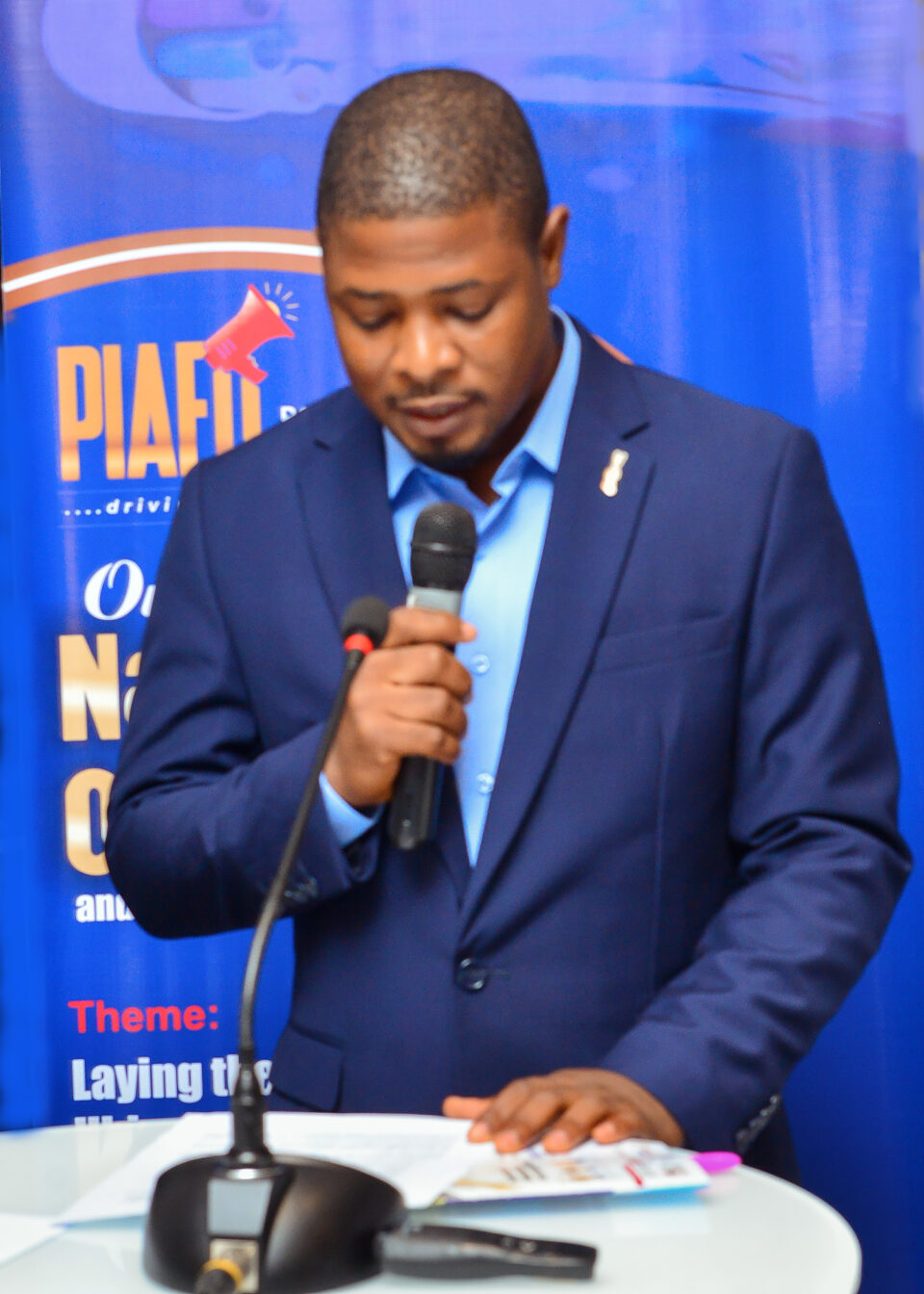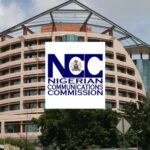From Cyriacus Nnaji, Lagos
Policy Implementation Assisted Forum (PIAFo) has taken a pacesetter stride in discussion on National Dig Once Policy and Fibre Strategy Implementation in Nigeria.
The conversation which was the Fourth Edition of PIAFo with the theme ‘Laying the Foundation for Ubiquitous Broadband for Nigeria’s Economic Breakthrough’ took place at Radisson Blu Hotel, Ikeja, Lagos on Tuesday, October 18, 2022.
In his Welcome Remarks, the Lead Executive, PIAFo; Editor, Business Metrics Nigeria, Omobayo Azeez, said the forum is designed to make invaluable contributions for proper formulation of the policy and its effective implementation after it is drafted. “This summit is the Pioneer stakeholder consultative forum dedicated to Dig Once in Nigeria. This speaks volume to the enormity of the task ahead of us today. We have positioned this forum to make invaluable contributions for proper formulation of the policy and its effective implementation after it is drafted.”
Azeez added that “Dig Once” policy include being alert to the potential to install or obtain fibre and conduit along rights-of-way on major infrastructure such as roads.
The Policy, he said, is imperative to deal with the bitter reality of telecoms sector anywhere in the world. The reality is that network expansion is often constrained by high cost of deploying infrastructure; and fibre optic is the backbone infrastructure for network expansion and high Quality of Service (QoS).
He said this explained why in the National Broadband Plan 2020-2025, Nigeria is pursuing fibre targets such as 60% Fibre to Towers Connection; Minimum of 120,000km Fibre Infrastructure; Fibre along all federal and state roads; Fibre along 90% of LGA roads; Connecting 100% Tertiary Institutions to Fibre; and Delivering 25 Megabyte per second Internet Speed by 2025, adding that achieving these and the ultimate 70% broadband penetration targets by 2025 requires an ecosystem of willing and united stakeholders including various agencies of governments, operators, equipment manufacturers, and internet service providers.
Azeez said “We believe all relevant stakeholders should be part of formulating this policy to ensure that the implementation is seamless and prevented from being revolted against in some quarters, just as the case with Right of Ways Charges in some states.”
Keynotes were delivered by two eggheads, the Minister of Communications and Digital Economy, Professor Isa Pantami who spoke on the theme ‘Laying the Foundation for Ubiquitous Broadband for Nigeria’s Economic Breakthrough’, and the Executive Vice Chairman, and Chief Executive Officer, Nigerian Communications Commission, Professor Umar Garba Danbatta, who spoke on ‘Unlocking the Full Potential of the Telecoms Sector as an Economic Enabler with Dig Once Policy’. The two communications helmsmen were represented by Engr Usman Aliu, Head, Spectrum Administration at NCC.
General Manager, Lagos State Infrastructure Maintenance and Regulatory Agency (LASIMRA) Engr. Bisoye Coker-Odusote spoke on Feasibility of Dig Once Policy Adoption by Nigerian States.
Speaking on the characteristics of the Dig Once Policy Coker-Odusote said that the Dig Once policy is basically the provision of a unified & harmonised duct infrastructure network for all Public Utility Operators and Public Institutions to cover every area of a particular state that which enhances the expansion of utility infrastructure & deployment of technology to any particular area and saves the operator the need to dig or trench for the provision of public services every time; while also saving the Government and the citizens from incessant damage to existing public infrastructure.
Coker-Odusote added that the advent of the digital economy globally has given room for the development and sustenance of requisite infrastructure for all facet of Public Utility, namely: telecoms. Power, gas, water, sewage.
On Implication of the policy Coker-Odusote said that the Goals of the National Development Plan include functional and economically viable metropolitan communities.
He said the National Dig Once policy needs to be adopted by all the States but with hybrid dimensions taking into consideration the uniqueness of the individual states
In the end Coker-Odusote said that a one size fits all Dig Once Policy may not work across board.
Speaking on the topic ‘Laying the Foundation for Ubiquitous Broadband as Nigeria’s Economic Enabler, Olabode Ojo, Director, Technical (Fibre Operations) said that to achieve Nigeria’s National Broadband Plan’s 70% broadband penetration target by year 2025, the NCC had initiated a number of initiatives and policies.
Ojo reeled out some Technical considerations for implementation of the policy which include Capacity that has to do with sufficient number and size of conduit needs to be installed to accommodate current and future needs; Segmentation meaning that conduit users need to have the appropriate level of separation from each other for commercial, security, or operational reasons; Access, indicative that vaults (or chambers) and handholes need to be placed to provide access to conduit and the ability to pull fibre. He said Vaults need to be spaced to minimise the cost of extending conduit to buildings and other facilities that may be served by fibre.
Other technical needs include Robustness,which he said the materials, construction standards, and placement need to reasonably protect the users’ fibre in a conduit, and not unduly complicate maintenance and repairs, adding that 100mm PVC-ducting or multiple subducts are used in many installations. He also said Architecture which sweeps, bend radius, and vault or chamber sizes need to be appropriate for all potential sizes of fibre. Installation should also consider the location of other utilities; Life-cycle management: an accurate record of all infrastructure assets should be kept in a GIS-based platform for proper administration; and Wider considerations: Government should also be mindful of the enabling and ancillary infrastructure needed to deliver connectivity. This includes ensuring access to power supplies and any wider energy infrastructure.
Ojo said a city should set up a suitable governance process to drive the rollout of digital connectivity, advocating that all conduit and connectivity installations must adhere to all health, safety, and environmental requirements and regulations, among others.
In conclusion, Ojo said that a Dig Once approach that encourages cooperation but does not prevent excavation when needed is most recommended for federal, state, and local agencies, adding that Operators’ participation should also be non-exclusive thereby enabling the desired rapid broadband penetration for the country.
Paper presentations include ‘Fiber Infrastructure Rollout Eco-System Development to Reach 60% Fiber to Site at 120,000km by 2025’ by Ashwani Mishra, Director of ICT Strategy & Marketing, Huawei Technology; Director General, Infrastructure Concession Regulatory Commission, Joe Aniku Michael Ohiani also delivered a paper; while Chidi Ajuzie Princewill, Group Chief Operating Officer, WTES Projects Limited spoke on ‘Public-Private Collaboration as a Catalyst for Dig Once Policy Implementation’; among other speakers.
The event ended with a panel discussion which was anchored by Ashwani Mishra.
Those that supported the Forum include the Honourable Minister of Communications and Digital Economy, Professor Isa Pantami, the Nigerian Communications Commission, Galaxy Backbone Limited, Huawei Technologies, IHS Towers, FibreOne Broadband, NgCom Networks, Infrastructure Concession and Regulatory Commission, LASIMRA, Phase3 Telecom Limited, Broadbased Communications, ipNX Nigeria, American Towers, WTES Projects Limited, ATCON, ALTON, Nigeria Internet Group, among others.



